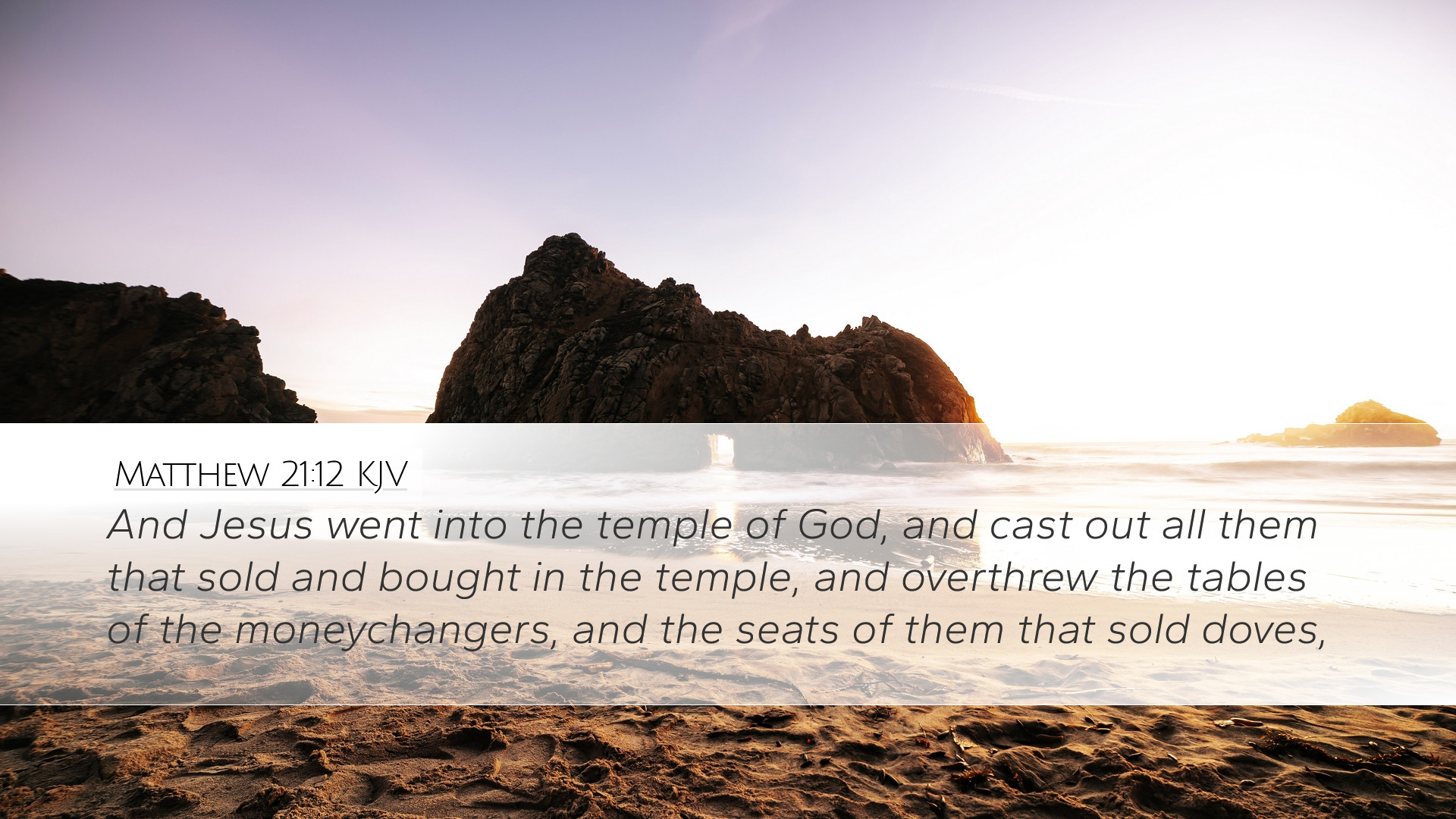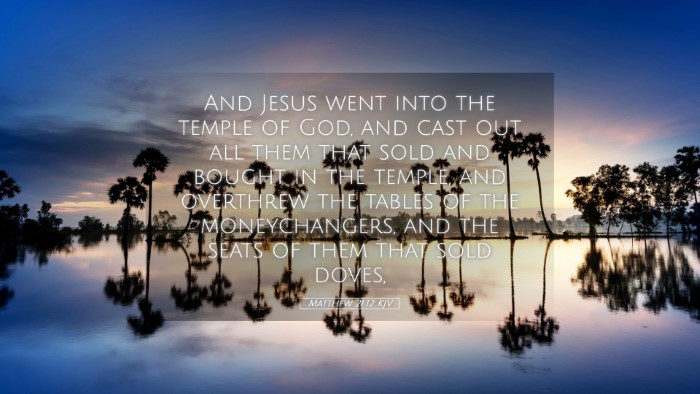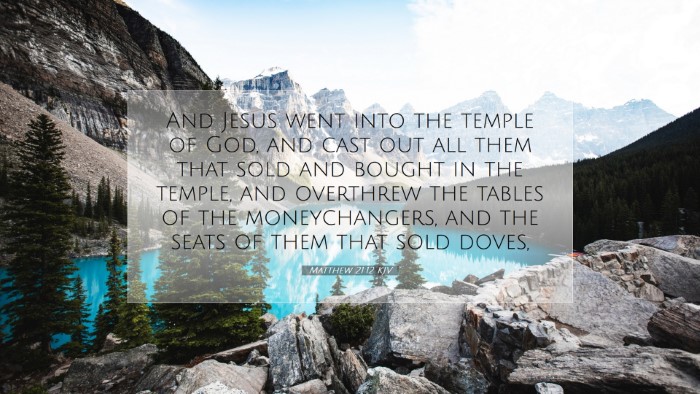Commentary on Matthew 21:12
Matthew 21:12 records a significant event in the ministry of Jesus Christ where He cleanses the temple. This verse serves as a key element in understanding both the mission of Jesus and the moral and spiritual implications for His followers. Below is a synthesis of insights from various public domain commentaries, providing a rich theological reflection suitable for pastors, students, theologians, and Bible scholars.
Text of Matthew 21:12
“And Jesus went into the temple of God, and cast out all them that sold and bought in the temple, and overthrew the tables of the moneychangers, and the seats of them that sold doves.”
Contextual Analysis
This incident takes place shortly after Jesus' triumphal entry into Jerusalem, which is recorded in Matthew 21:1-11. The cleansing of the temple indicates the fervor of His mission, as He demonstrates His authority not only as a teacher and healer but also as a reformer of religious practice.
- Historical Context: The temple served as the center of Jewish worship; however, it had been corrupted by commercial activities. This passage highlights the indignation of Jesus against the exploitation of sacred spaces.
- Spiritual Significance: Jesus' actions signify a profound message about the purity of worship and a call for reform in religious practices.
Theological Implications
Jesus' cleansing of the temple serves as a precursor to the broader themes of judgment and mercy that permeate the Gospel. Commentators like Matthew Henry emphasize the importance of ensuring that worship is not compromised by materialism.
- Judgment on Corruption: Adam Clarke notes that Jesus’ anger is directed against the commercialization of faith, where buying and selling overshadow true worship.
- Call for Righteousness: Albert Barnes discusses the idea that true worship should reflect not just external adherence to rituals but an inward commitment to God's holiness.
Jesus’ Authority
In this act, Jesus exercises divine authority, which is key to recognizing His identity as the Messiah. The actions taken in the temple reflect His zeal for God's house.
- Fulfillment of Prophecy: This event fulfills prophetic declarations regarding the Messiah’s expectation of purity in worship spaces, aligning with passages found in Jeremiah and Isaiah.
- Symbolism of the Temple: The temple’s defilement represents a broader issue of idolatry and the erosion of genuine relationship with God, highlighting why Jesus found such behavior intolerable.
Application for Today
Pastors and theologians can draw significant lessons from this passage regarding the nature of authentic worship and the importance of preserving the sacredness of worship spaces in contemporary practice.
- Self-reflection: This passage prompts individuals and congregations to examine their own practices when it comes to corporate worship and community life.
- Exhortation to Purity: There is a call to ensure that church activities are not compromised by commercialism, and that worship remains a sincere expression of love for God.
Conclusion
The cleansing of the temple in Matthew 21:12 serves as a powerful reminder of Jesus’ mission to restore the integrity of worship. Through the insights offered by the noted commentators, we are urged to pursue purity and authenticity in our approach to God, reflecting on the profound implications of Jesus' actions for our own lives and church communities.


